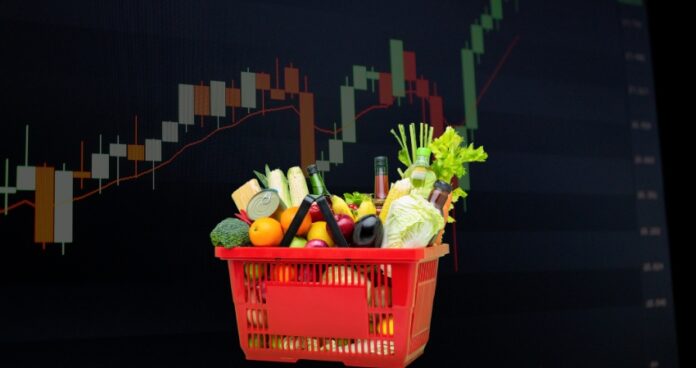The Sensitive Price Indicator (SPI), for the week ending September 14, 2023, reported a slight decrease of 0.25 percent after eight consecutive weeks of increases.
This decline was primarily driven by reductions in sugar and chicken prices, which fell by 9.11 percent and 5.47 percent, respectively. However, the year-on-year inflation rate remained high at 26.25 percent, with substantial increases in essential items such as wheat flour (114.37 percent) and gas charges (108.38 percent).
Data released by the Pakistan Bureau of Statistics (PBS) showed that out of 51 items, the prices of 24 items increased, 8 items decreased and 19 items remained unchanged compared to the previous week.
The decline in prices was observed in food items, with sugar dropping by 9.11 percent, chicken decreasing by 5.47 percent, eggs by 2.79 percent, bananas by 0.86 percent, tea by 0.59 percent, gram pulse by 0.57 percent, 1kg vegetable ghee by 0.16 percent, and five-liter cooking oil by 0.10 percent compared to the previous week.
The closure of the Torkham border with Afghanistan had a significant impact on vegetable prices, particularly tomatoes and onions, leading to an unprecedented surge in their retail prices nationwide. With the border now open for trade, Pakistan aims to stabilise vegetable supplies and combat rising prices.
Sugar prices decreased by over 9 percent due to crackdown on hoarding and smuggling. Despite this decline, overall food prices have remained elevated, placing strain on households’ purchasing power and disposable income. Factors such as global food and energy price hikes and rupee depreciation continue to contribute to inflation.
The central bank expects inflation to gradually decrease from October onwards, providing some relief to consumers. Nevertheless, challenges persist as prices of various essential items continue to fluctuate, affecting the cost of living for many Pakistanis.




